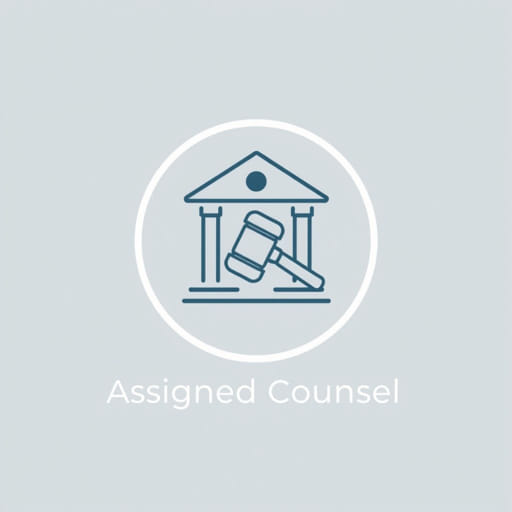The Erie County Assigned Counsel Program plays a crucial role in ensuring that individuals who cannot afford private legal representation receive fair and competent defense. This system operates within the framework of constitutional rights, particularly the right to counsel guaranteed under the Sixth Amendment. By providing assigned attorneys to indigent defendants, the program helps maintain justice, equality, and due process within the legal system of Erie County. Understanding how the Erie County Assigned Counsel Program functions, its purpose, and its impact highlights the importance of accessible legal aid for all members of society.
Overview of the Erie County Assigned Counsel Program
The Erie County Assigned Counsel Program was established to provide legal representation to defendants who are financially unable to hire an attorney. This program covers various types of cases, including criminal defense, family court matters, and other situations where legal counsel is required by law. Assigned counsel are typically private attorneys who contract with the county to handle cases for qualifying individuals.
Purpose of the Program
The primary goal of the Erie County Assigned Counsel Program is to ensure that no individual faces the legal system without proper representation simply because of financial hardship. By offering access to qualified attorneys, the program upholds the principle of equal justice under law and prevents economic status from determining the outcome of legal proceedings.
Eligibility for Assigned Counsel
To qualify for representation through the Erie County Assigned Counsel Program, a defendant must meet specific income and asset requirements. These criteria are designed to identify individuals who genuinely cannot afford private legal services. The court typically reviews financial affidavits and supporting documentation to determine eligibility.
Factors Considered in Eligibility
- Household income compared to federal poverty guidelines.
- Assets and property ownership.
- Expenses and financial obligations.
- Nature and severity of the legal case.
Types of Cases Handled
The Erie County Assigned Counsel Program covers a wide range of legal matters. While criminal defense is one of the primary areas, the program also provides assistance in other situations where legal representation is essential to protect rights.
Criminal Defense
Defendants charged with misdemeanors or felonies who cannot afford an attorney are often represented by assigned counsel. These attorneys handle everything from arraignment to trial, ensuring that the defendant’s rights are safeguarded throughout the process.
Family Court Matters
In cases involving custody, child support, neglect, or abuse allegations, assigned counsel may be appointed to represent parents or guardians. This ensures that family-related decisions are made with the benefit of professional legal advocacy.
Appeals and Post-Conviction
In certain situations, assigned counsel may also handle appeals or post-conviction matters to ensure defendants receive a fair review of their cases, especially when potential errors or constitutional violations are alleged.
Role of Assigned Attorneys
Attorneys participating in the Erie County Assigned Counsel Program carry significant responsibility. They must provide the same level of dedication and professionalism as they would for paying clients. Their duties include:
- Advising defendants of their legal rights and options.
- Investigating facts and gathering evidence.
- Negotiating plea deals when appropriate.
- Representing clients in court hearings and trials.
- Ensuring due process is followed at every stage of the case.
Benefits of the Program
The Erie County Assigned Counsel Program provides multiple benefits to both defendants and the justice system as a whole. By offering access to legal representation, the program helps maintain the integrity of court proceedings and reinforces public trust in the legal system.
Access to Justice
One of the most significant benefits is ensuring access to justice for those who would otherwise be unable to afford it. This levels the playing field and allows individuals to defend themselves adequately regardless of financial status.
Efficient Court Process
By providing competent attorneys, the program helps streamline court procedures, reducing delays caused by unrepresented defendants. This efficiency benefits not only the defendants but also the overall functioning of the judicial system.
Challenges Faced by the Program
Like many public defense systems, the Erie County Assigned Counsel Program faces challenges such as limited funding, heavy caseloads, and the need for ongoing training. Ensuring that assigned attorneys have sufficient resources and support is crucial to maintaining the quality of representation.
Addressing Resource Limitations
Efforts are often made to secure adequate funding and improve case management practices. Providing continuing legal education and support for assigned counsel ensures they can meet the demands of complex cases effectively.
Community Impact
The impact of the Erie County Assigned Counsel Program extends beyond individual cases. By protecting constitutional rights and promoting fairness, the program strengthens community trust in the legal system. It also plays a role in reducing wrongful convictions and ensuring that vulnerable populations receive proper legal advocacy.
The Erie County Assigned Counsel Program serves as a vital safeguard for justice, ensuring that financial hardship does not become a barrier to legal representation. Through assigned attorneys, the program upholds the right to counsel, supports due process, and reinforces the principle of equal protection under the law. Despite challenges, its role in maintaining fairness within the justice system makes it an indispensable part of Erie County’s legal framework. Understanding its function and significance highlights the ongoing need for accessible and effective legal aid services.
